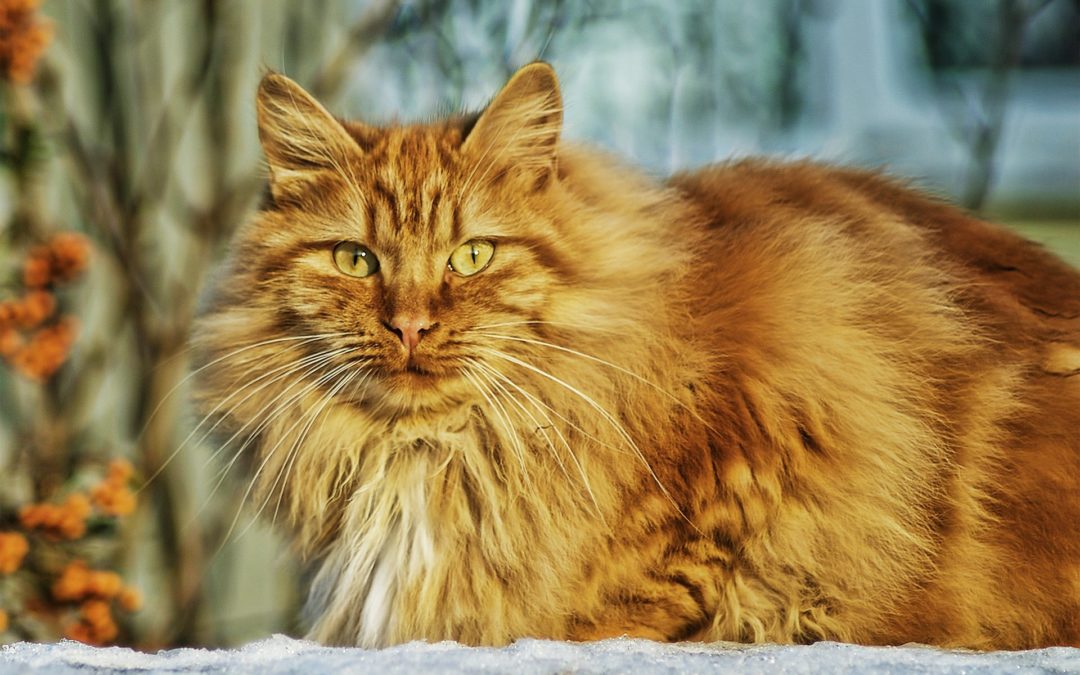The average life expectancy of a cat is between 12-18 years. But with today’s technological advancements in veterinary medicine, your furry friend just might live into her 20s. Generally, cats between the age of 11-14 are considered senior. At East Valley Animal Hospital in Gilbert, AZ, we offer the highest quality of care for pets at every stage of life. And we know that, depending on their level of health, caring for elderly cats requires a little more effort and attention.
Common Age-Related Issues in Older Cats
As Fluffy leaves the prime of her life and moves into her senior years, her physical body changes, along with her behavior. Being aware of these changes and learning to identify behavior associated with them is helpful when caring for elderly cats. Here are some possible physical issues that can occur with older felines:
- Changes in thyroid function
- Decrease in kidney function
- Gradual loss of vision
- Heart or circulatory problems
- Decrease in immune function
- Restrictions in mobility/arthritis
- Decreased sense of smell
- Loss of skin elasticity
- Brittle nails
Behavioral Changes in Aging Cats
Along with the aging process of your cat, there are a number of behavioral changes that are normal and do not necessarily indicate a more significant underlying issue.
- Reduced ability to handle stress
- Decrease in activity level
- Diminished appetite
- Inability to groom as well as she once did
- Change in sleep cycles
- Change in sociability
- Increased attachment to the owner
Physical & Behavioral Changes that Could Signify Illness or Disease
If your cat has been part of your family from the time she was a kitten, you know her behavior quite well. However, even a subtle change in her behavior may indicate illness or disease. Keep a close eye on these behaviors and consult one of our skilled vets at East Valley Animal Hospital if you notice any concerning changes in your elderly cat.
- Stiffness, lameness, or difficulty jumping
- Lethargy
- Lumps or swellings
- Balance problems
- Toilet accidents
- Problems with eliminating
- Disorientation or distress
- Weight loss
- Refusal to eat
- Increase in thirst or urination
- Uncharacteristic behavior (e.g., hiding, aggression, excessive vocalization)
Caring for Elderly Cats
A large part of caring for elderly cats is monitoring their behavior closely and consulting a veterinarian if you suspect a change in behavior that could be a symptom of a deeper, underlying issue. Scheduling your cat’s biannual health checkups is important as well. Here are a few other things you can do to make the aging process a little easier for Fluffy:
- Make sure food, water and litter box are easily accessible. As your cat ages her joint function will limit her mobility and ability to jump. If you used boxes with high sides in Fluffy’s younger years, consider getting a box with shorter sides in her older years. And if you have a multi-story house, provide litter boxes on each level.
- The claws of an aging feline become thick and brittle and may require more frequent clipping.
- Loss of vision and hearing is a natural part of aging. If your cat has lost much of her hearing or vision, remember to approach slowly and with care in an effort not to startle her.
- As your cat begins to groom herself less, you might need to step in and gently groom her to keep her fur from matting and creating inflammation or skin issues.
- Provide a stress-free environment.
- Exercise and activity are still important for the health of older cats. Engage your cat in moderate play to keep her activity levels up.
- If your cat has a favorite spot to lounge (such as a windowsill) that becomes inaccessible due to the aging process, consider getting a ramp or steps that allow them to access their happy place.
- Provide your cat with a healthy and nutritious diet. Consult your vet if you are unsure of your aging cat’s necessary caloric intake.
If your cat maintains good health as she ages, her older years can still be enjoyable for both you and her. Educating yourself on the unique needs of older cats will better prepare you to be of help in her later stages of life. And as needed, our compassionate vets at East Valley Animal Hospital are here for you and your precious companion, to help make the aging process a positive experience for you, your cat, and your household.
Images used under creative commons license – commercial use (1/28/2019) Pixaby

